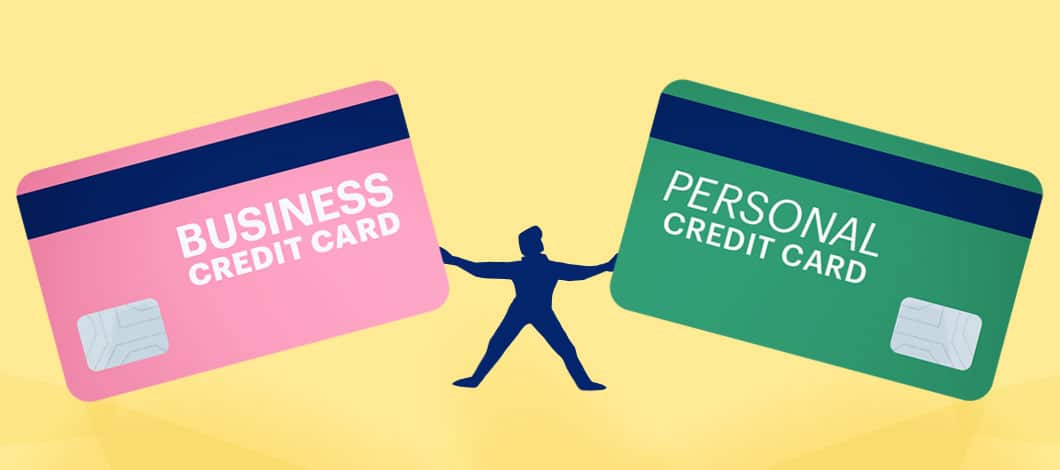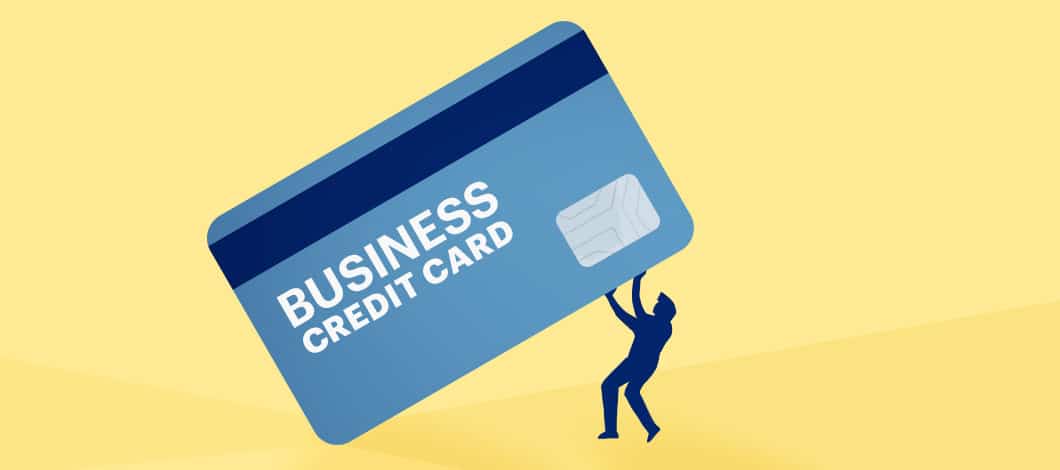Business credit cards may affect your personal credit in several ways. Learn how the two can interact and how to protect your credit.
First, we’ll consider the difference between personal and business credit to understand how the two can interact. Then we’ll look at some of the different ways business credit can impact personal credit. Finally, we’ll offer some tips on how you can keep business credit card usage from negatively affecting your personal credit.
Personal Credit vs. Business Credit: What’s the Difference?
Your personal credit score and your business credit score are similar but separate scoring systems credit card companies and lenders use to measure creditworthiness and evaluate the risk of you not paying back what you owe. Personal credit score measures the creditworthiness of you as an individual, while business credit score measures the creditworthiness of your business.
How Personal Credit Is Scored
Your personal credit score is keyed to your taxpayer identification number (TIN). For most people, that is your Social Security number (SSN). Credit data analytics provider FICO designed the standard personal credit scoring system. It uses a base score of 300 to 850, where a score of 670 or more is considered a good credit score.
Factors that affect your credit score are categorized and weighted as follows:
- Payment history of making payments on time: 35%
- Balance owed in proportion to credit limits: 30%
- Length of credit history: 15%
- Credit mix of repaying different types of debt obligations, such as credit cards, term loans and installment loans: 10%
- Frequency of new credit applications, which can reflect your financial stability: 10%
Personal credit reporting companies gather information about these variables when your creditors report to them. Creditors file reports on regular cycles, typically every month, although some may report more frequently and others may use longer cycles.
You can increase your score by optimizing the areas which impact your score. You can do this through steps such as paying bills on time, keeping balances low and borrowing a mix of credit cards and different types of loans.
Financial providers assessing your personal creditworthiness may use their own internal scoring systems along with or instead of FICO’s. In addition to your personal credit score, financial providers may consider other factors which indicate your ability to repay debt and your financial stability, such as your annual income level.
How Business Credit Is Scored
A company’s business credit score is keyed to its business TIN, known as an employer identification number (EIN). Business credit scores work similar to personal credit scores. Credit reporting companies Dun & Bradstreet (D&B), Equifax and Experian use scales that go up to 100, with 80 being good for D&B, 90 for Equifax and 76 for Experian.
Factors that affect business credit scores include:
- Your company’s payment history of paying vendors on time
- Whether your suppliers and lenders are reporting your payments to business credit reporting companies
Business credit reporting companies collect information on payment history when creditors file periodic reports.
You can improve your business credit score by taking steps such as paying vendors on time and registering with D&B to get a business identification number known as a DUNS number.
In addition to your business credit score, financial providers assessing business creditworthiness may consider variables such as your company’s annual revenue and how long your company has been in business.
Does Business Credit Affect Personal Credit?
Because business credit and personal credit use different identification numbers and different scoring systems, they don’t necessarily impact each other. However, there are situations when they can affect each other:
If your business credit card provider requires a personal guarantee, they may check your personal credit score. This check can show up on your credit report. This increases the number of recent credit applications recorded on your report. An excessive number of credit inquiries over a short period can temporarily lower your score because it gives the impression that you’re short on cash, raising questions about your ability to repay debt.
If you apply for a business credit card and you use your SSN rather than your EIN on the application form, the company reviewing your application will check the credit history tied to your SSN, which will reflect on your credit report as a recent credit application.
If your business credit card provider files reports with personal credit reporting companies, any late or delinquent payments will show up on your personal credit report, as will any high balances
Most business credit card providers don’t report to personal credit reporting companies as a standard operating procedure, but some do. Some providers will report only negative information such as missed payments or severe delinquencies.

How Can You Keep Business Credit From Negatively Affecting Personal Credit?
First, it’s important to realize that your business credit score can have a positive impact on your personal credit as well as a negative one. For example, if your card provider reports to personal credit reporting companies and you pay on time and keep balances low, this positive activity will reflect on your personal credit score.
That said, if you’re concerned about the potential negative impact of your business credit card on your personal credit, there are several steps you can take to protect yourself:
- Apply to business credit card providers who don’t report to personal credit card reporting companies
- Apply using your EIN rather than your SSN
- Don’t miss payments
- Keep balances at 30% of your limit or less
- Monitor your credit report periodically and report inaccurate information or suspicious activity
If you find that keeping your credit card balance low requires finding additional financing for your business expenses, consider applying for a business term loan or another form of business financing.
Which Business Credit Cards Don’t Report to Personal Credit Reporting Companies?
Most business credit card providers don’t normally report to personal credit reporting companies as long as you keep up with payments. However, there are exceptions to this rule.
According to research conducted by personal finance company Credit Karma, business cards that report to personal credit reporting companies include:
- Capital One
- Discover
Both of these providers as well as American Express and Chase will report delinquent payments. Business credit cards that only report to business credit reporting companies as long as you keep up with your payments include:
- American Express
- Bank of America
- Chase
- Citi
- Wells Fargo
Among these, Bank of America, Chase and Wells Fargo don’t report delinquent payments to personal credit reporting companies.
Manage Credit Cards Wisely to Protect Business and Personal Credit
Does a business credit card affect your personal credit? The answer depends on which card you use and how you use it. Business cards that report to personal credit reporting companies can impact your personal credit score. When your card provider reports your data, applying for cards, high credit balances and late payments can all carry over to your personal credit. Even if your card provider normally doesn’t report your data, severe delinquencies may get reported.
You can protect both your business and personal credit by:
- Following credit card management best practices
- Using business credit cards that don’t report to personal credit reporting companies
Pay bills on time, keep your balances low and choose the right card to protect your business and personal credit.











